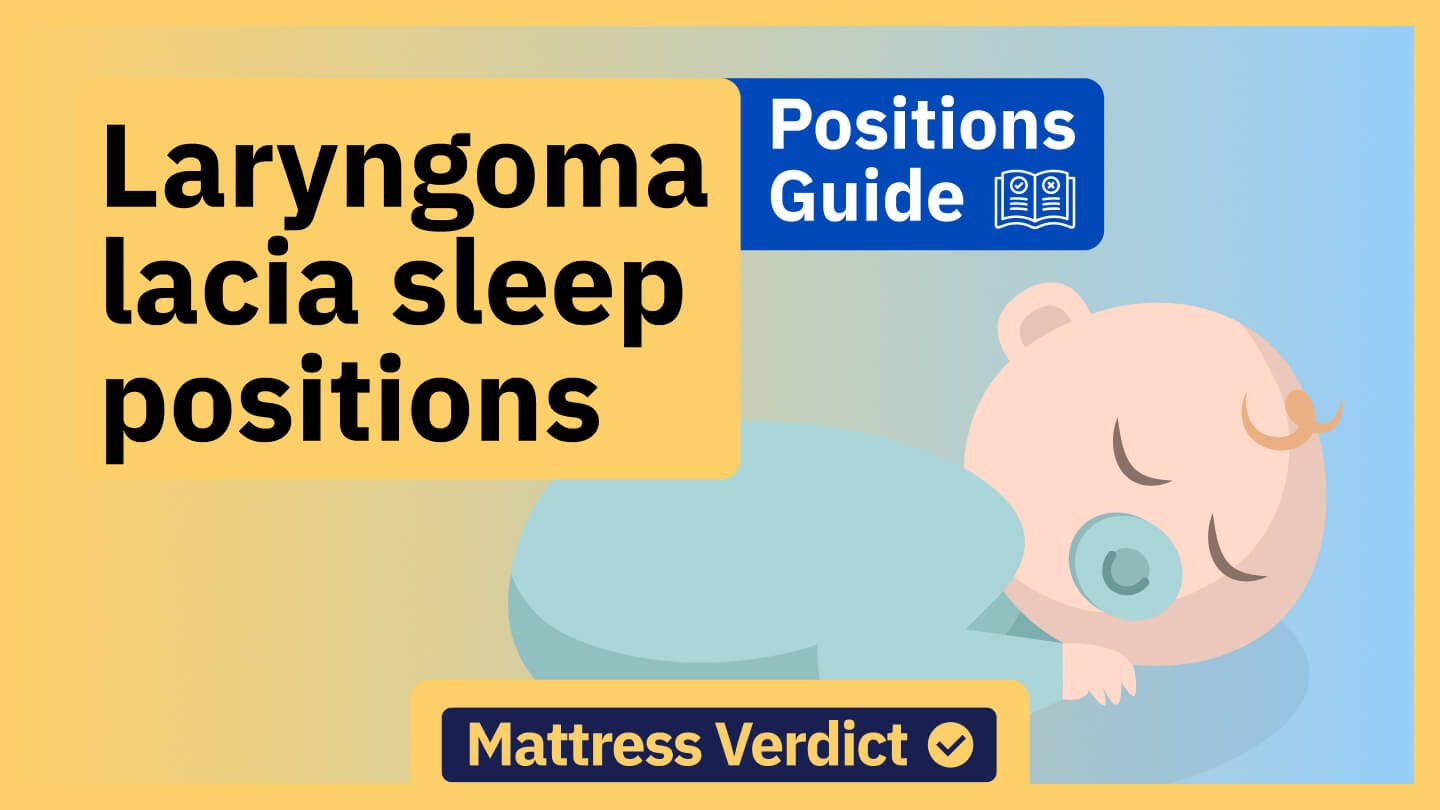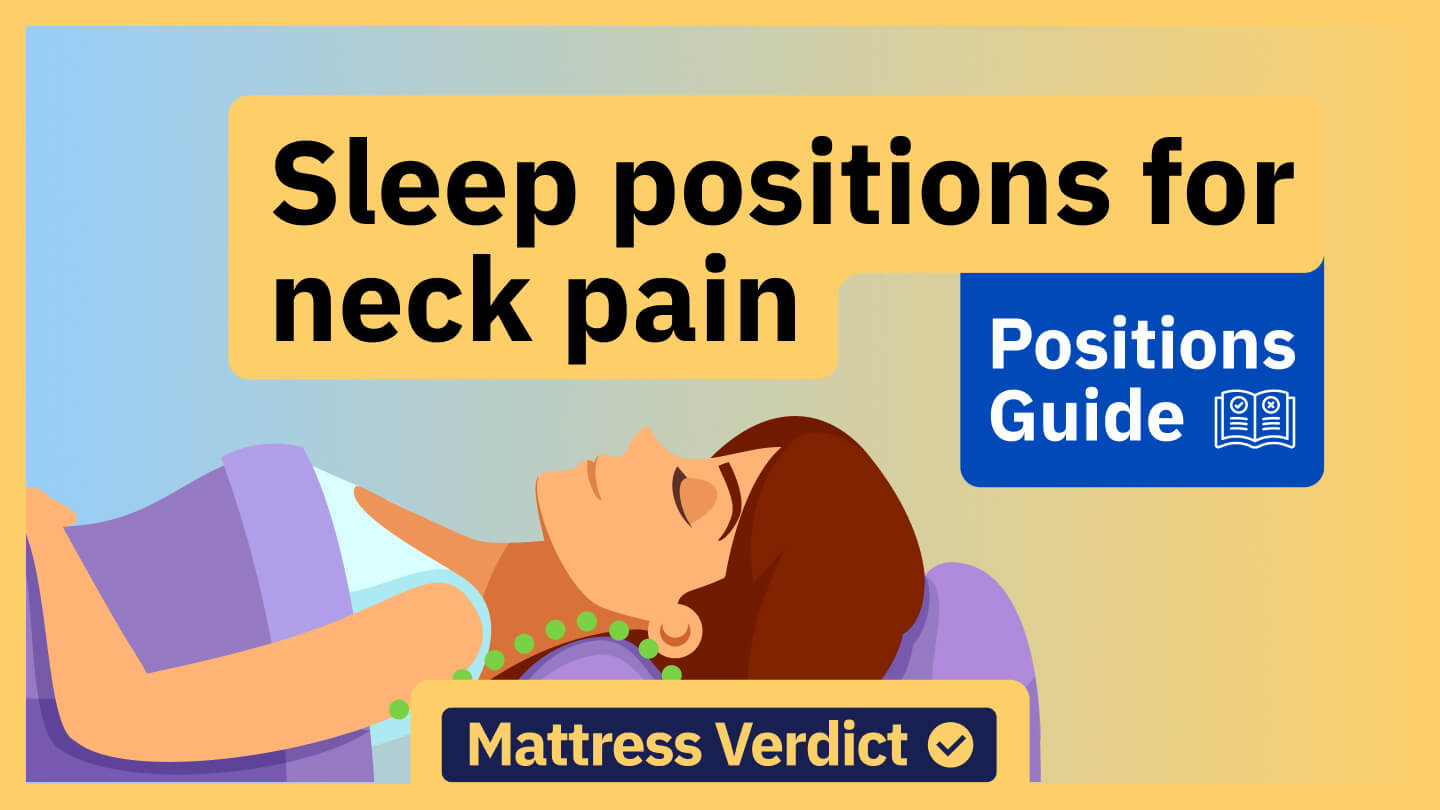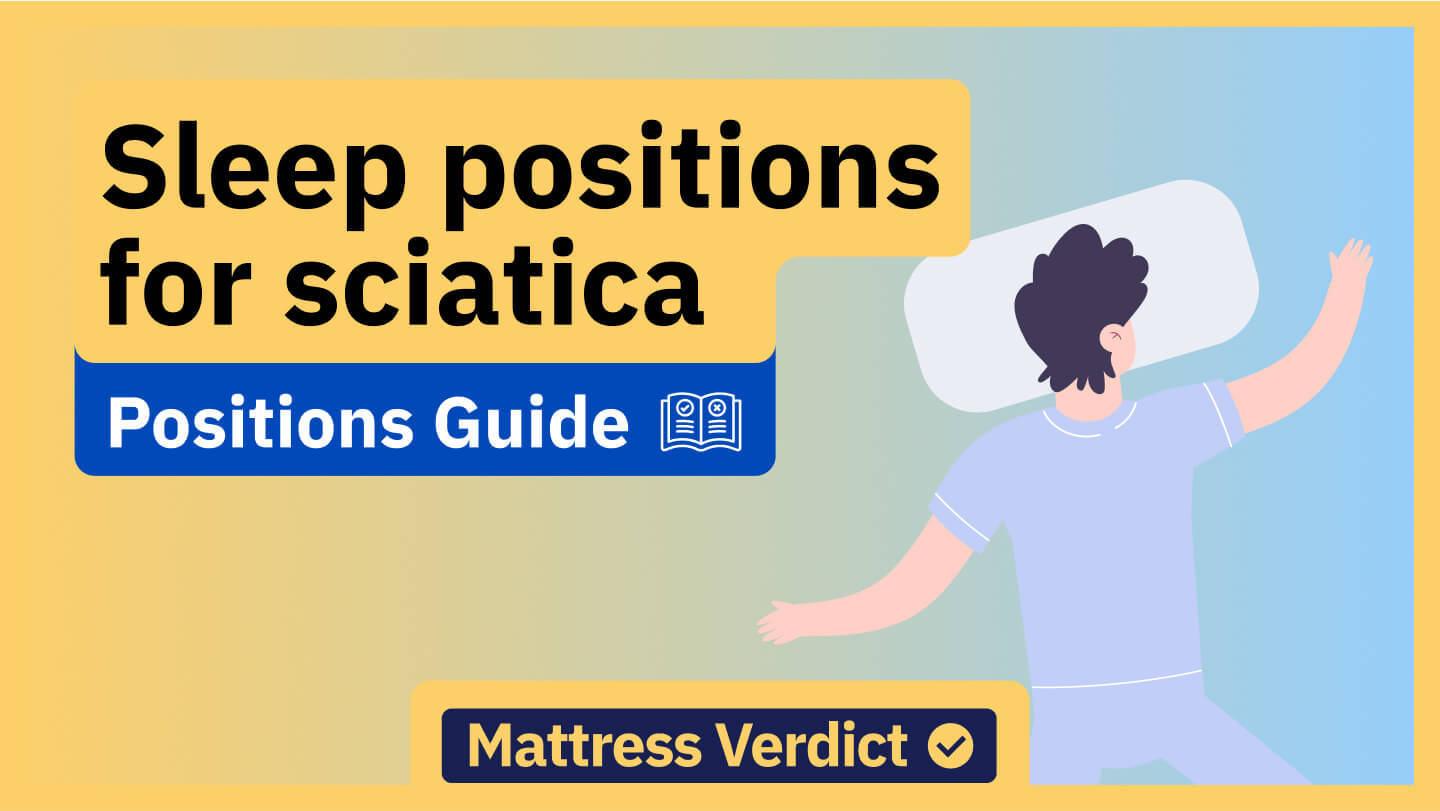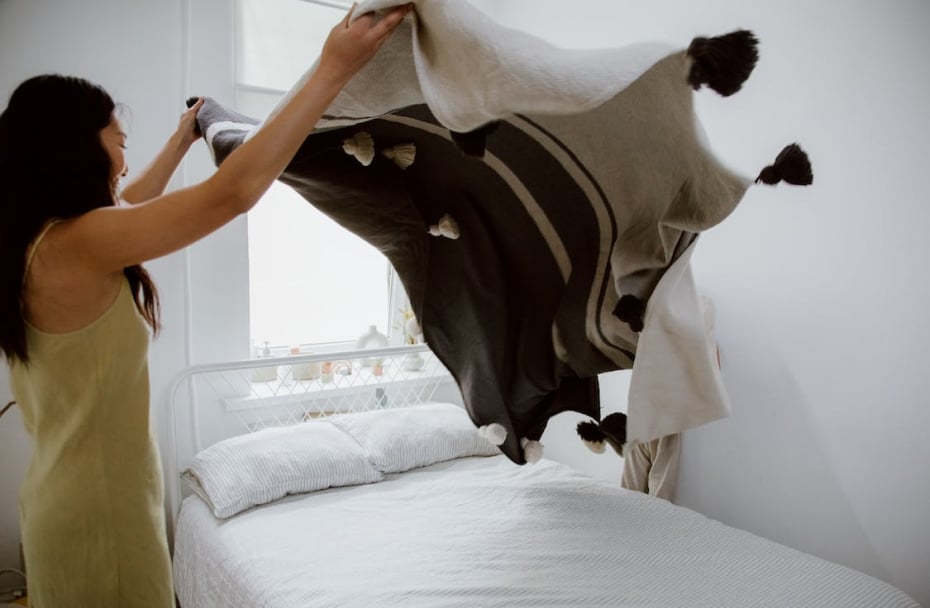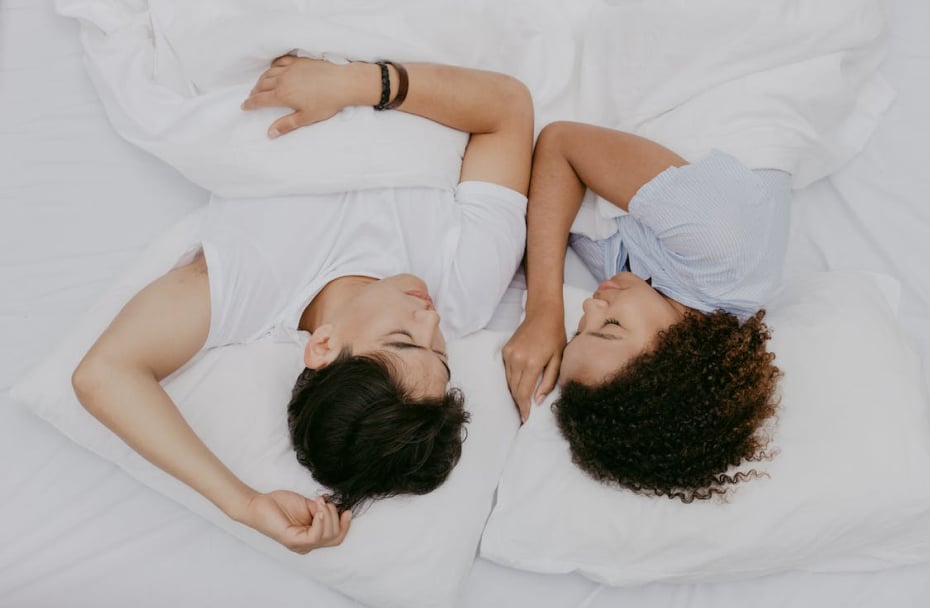

Sleeping with hip pain is difficult for most people. Patients often find it impossible to relax their hips at night. Hence, they do not get adequate rest and wake up feeling stressed. If you are looking for how to sleep with hip pain, Mattress Verdict explores the best sleep positions for hip pain. You will also discover helpful tips for coping with this condition.
Key Takeaways
- Hip pain makes sleep uncomfortable.
- There are practical tips for managing hip pain.
- You should consult a health expert if hip pain symptoms do not improve.
How to Sleep With Hip Pain
Finding the best sleep position for hip pain might seem impossible. However, health experts recommend the following measures to help you get hip pain relief while sleeping.
Sleeping on Your Back
Experts recommend lying on your back as the best sleeping position for hip pain. This position lets you relax your spine naturally and is one of the best sleep positions for sciatica pain.
Sleeping with your legs elevated can improve results. Consider placing extra pillows below your knees to raise them slightly above your body.
Sleeping on Your Side
Sleeping on your side is also one of the recommended sleep positions to relieve hip pain at night. Side sleeping is the best sleeping position for hip alignment. However, this posture can be challenging if both hips are affected.
You should lie on the side of the unaffected hip while placing a pillow between your knees to cushion your hip pressure points while sleeping.
Side sleeping is also one of the best sleep positions for neck pain. While sleeping on your side, you can place a suitable neck pillow to maintain your spine's neutral position.
Getting the Right Mattress
Using a firm mattress will provide adequate hip support for sleeping at night. Standard soft mattresses will not provide your body with the required support to keep your hips in a neutral position. You can find the right mattress by taking the Mattress Verdict quiz.
Causes And Symptoms of Hip Pain
Although hip pain is usually triggered by accidents and injuries, many other factors could be responsible.
Bursitis
Your hip joints are surrounded by tiny sacs called bursae. These sacs are filled with fluids that cushion your hip joints while you move. They could become inflamed due to injury or infection. Bursitis causes the bursae to become tender and painful when they grind against your joints.
Osteoarthritis
This condition is caused by the wearing down of the cartilage around your hip joints. Osteoarthritis is usually due to aging. However, it could be caused by injuries or accidents. Osteoarthritis causes swelling in the hip joints that could worsen due to motion.
Pregnancy
Pregnancy puts more stress on your hips. This extra pressure could cause your joints to swell, making walking and sleeping difficult. This discomfort worsens as the pregnancy progresses and starts to reduce after childbirth.
Sciatic-Piriformis Syndrome
Sciatic-piriformis syndrome is a condition that affects the lower back and buttocks. Sometimes, it causes pain and tingling in the hips.
Tendonitis
Tendons attach the hip muscles to the femur, enabling movement. However, hip tendonitis occurs when the tendons become inflamed due to accidents or injury.
Symptoms of Hip Pain
Experts associate hip pain with severe discomfort. Here are common symptoms that patients might experience.
- Pain in the outer and upper thigh regions.
- Pain in the hip joints after sitting or resting in one position for a long time.
- Pain in the hips after a long walk or other motion.
- Tenderness in the hip region that causes pain when touched.
- Pain around the groin and buttocks region.
- Difficulty bending over, squatting, or lifting objects.
- Grinding sounds in the joints while moving.
Alternative Remedies to Alleviate Hip Pain While Sleeping
Besides sleeping in the correct position at night, health experts recommend alternative solutions for people searching for how to help with hip pain while sleeping.
Exercises
You can reduce hip pain at night by using several light exercise routines before you sleep. These exercises will help you open up your hips and lower your discomfort. Exercises such as swimming, light stretching, and walking are an excellent way to start. You could also try yoga poses. However, you should consult a physical therapist to help you discover suitable exercise routines.
Pain Relievers
Taking over-the-counter pain relief medications like aspirin and ibuprofen is the quickest solution for how to sleep with bad hips at night and get better rest. The anti-inflammatory compounds in most pain relief pills could provide instant relief when hip pain becomes unbearable. However, getting a doctor's prescription before using any pain relief medication would be best.
Massages
Massages are an excellent way to reduce hip pain and discomfort and get more sleep. Experts recommend using topical creams to massage affected joints and tissues before bedtime. You could also schedule regular massage sessions with a professional to help you manage hip pain better.
Regular Sleep Routine
Staying too long in bed is terrible for hip pain. You can overcome this problem by sticking to a regular sleep routine. This way, you reduce the amount of time you spend in bed. Also, avoid taking your phone to bed with you.
Dieting
Being mindful of your diet will also help you improve your sleep at night. Avoid consuming caffeinated drinks at least five hours before your bedtime, as well as alcoholic beverages or sleeping aids.
Medical Consultation
If hip pain symptoms keep you from sleeping at night, consult a doctor. Severe hip pain could indicate more serious health challenges, and you might need to undergo scans and X-rays to identify any underlying issues.
Frequently Asked Questions
What is the best pain relief for hip pain at night?
You might ask, "What is the best pain relief for hip pain at night?" You can relieve hip pain at night by taking over-the-counter medication. However, it would help if you got a doctor's prescription for these drugs to prevent the risk of further complications.
When should you not ignore hip pain?
Like many worried patients, you may wonder, "When should you not ignore hip pain?" You should not ignore any of the subtle indications of hip pain. These symptoms include pain in your hip joints, pain while bending over, and pain after walking. Take action before hip pain stops you from sleeping at night.
How do you open your hips before bed?
You might be wondering, "How do you open your hips before bed?" Here is an exercise routine you can try. Stand with both legs open and your feet facing forward. Then, squat, ensuring your pelvis remains between both feet as you descend. Now, place your hands on the ground. Ensure that your knees are upright while maintaining this position. Hold this posture for about 30 seconds before repeating the routine.
How do you know if hip pain is muscle or joint?
If you ask, "How do you know if hip pain is muscle or joint?" here's what you should know. Joint pains are more noticeable when the body is at rest. You feel muscle pain while you move. Also, muscle pain is more pronounced in the buttocks, upper thighs, and outside of the hips. But, joint pains are felt in the inner thighs and groin region.
At what age do hip problems start?
You might wonder, "At what age do hip problems start?" There is no specific age at which hip problems begin to develop. However, experts identify people above 40 as being more at risk of developing hip problems.
How to sleep with hip bursitis?
If you are wondering "how to sleep with hip bursitis?", here's what you should know. Sleeping on your back will prevent you from rubbing your joints together. This way, you avoid causing further inflammation to affected joints. You could also try sleeping on the side of the unaffected hip while placing a pillow between your knees.
How to sleep with arthritis pain in hip?
You might be searching for how to sleep with arthritis pain in your hip. Sleeping on your back is the safest way to sleep with arthritis pain in the hips. You could also support your lower back with a suitable pillow. This way, you place your spine in a neutral position and reduce the pressure on your joints.
How to sleep with tight hip flexors?
Here's what you should know if you are looking for how to sleep with tight hip flexors. Lying on your back is the safest sleep position for tight hip flexors. Place a pillow under the affected knee to ease the stress and get more comfortable. Also, use a supportive mattress to help you maintain a more relaxed posture.
